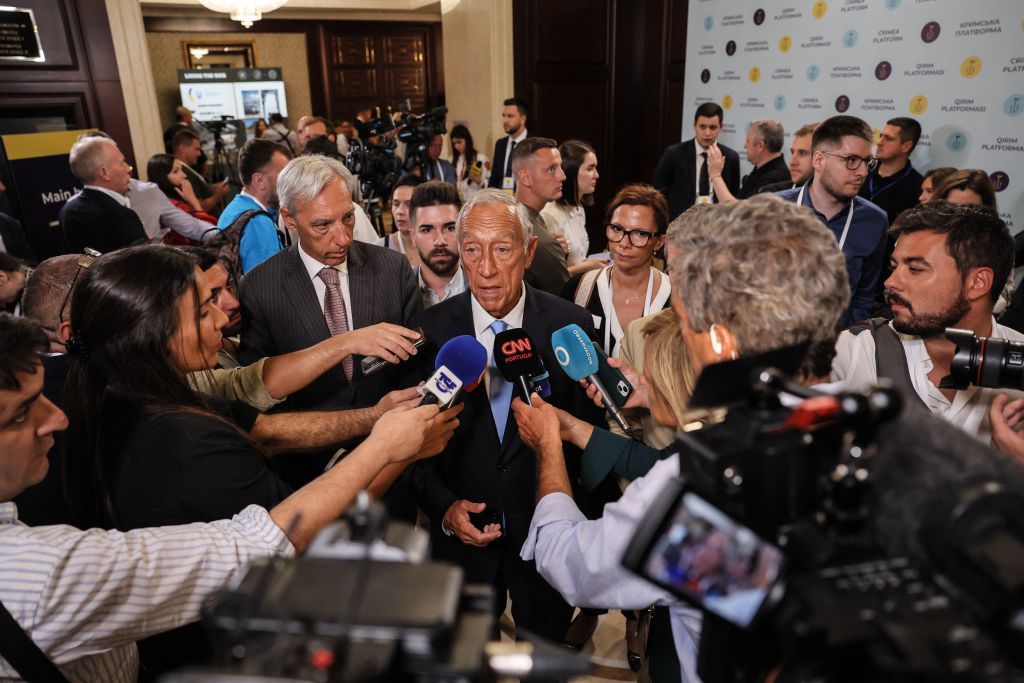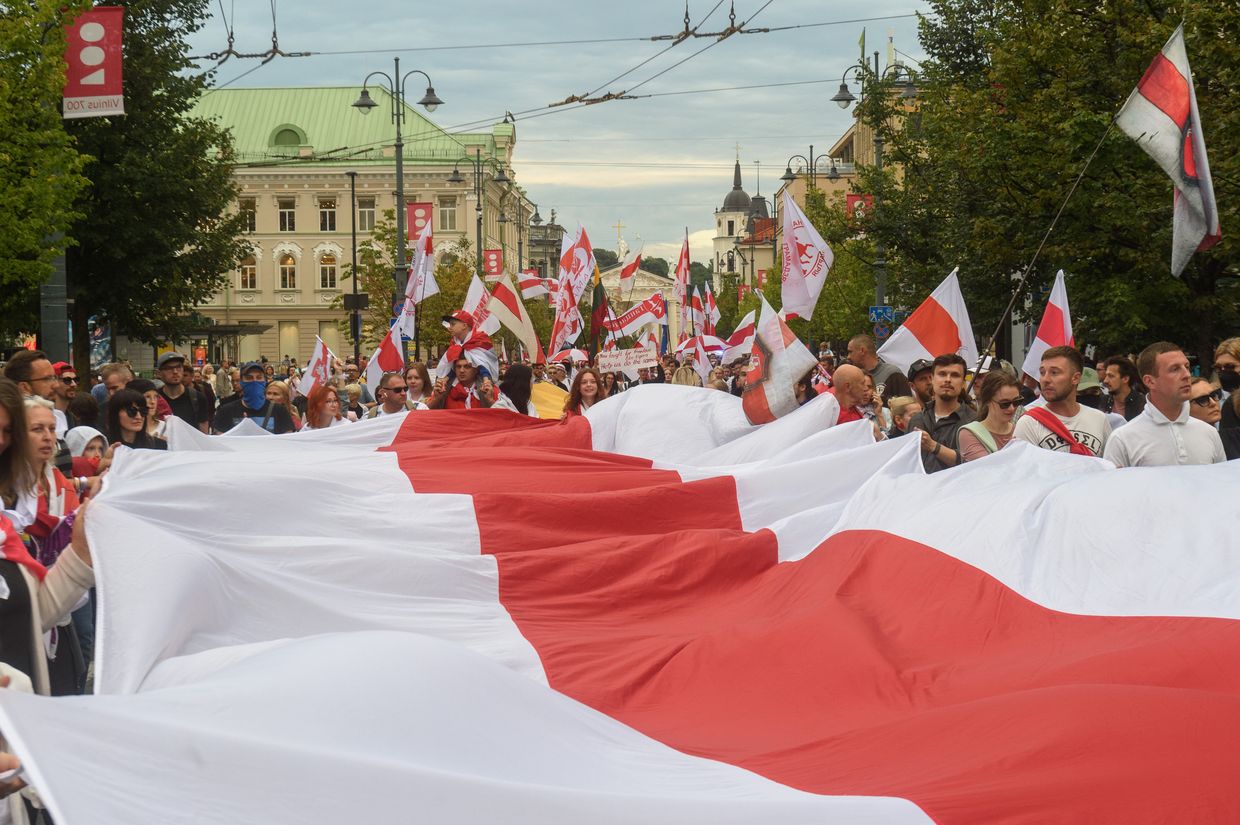George Monastiriakos: The best reason why Russia must be defeated in Ukraine? Because it is weak

Russia has terrorized Ukraine beyond the point of no return. In doing so, the Ukrainian Armed Forces (AFU) have exposed the Russian army’s many weaknesses.
The Kremlin failed to achieve all its strategic objectives since launching its full-scale invasion of Ukraine in February 2022. Rather than preventing the expansion of NATO, Finland and Sweden abandoned neutrality to join the Alliance. Like the Mediterranean and North seas, the Baltic Sea will soon become a NATO lake. Russia has also gained a 1, 340-kilometer-long border with the Alliance.
The Russian army did not capture Kyiv nor decapitate Ukraine’s democratically elected government. It also failed to subject freedom-loving Ukrainians to proxy rule from Moscow. Instead of successfully demilitarizing Ukraine as the Kremlin intended, the Ukrainian state has become the most militarized country in Europe. Ukraine’s Western orientation, and its Euro-Atlantic future, are now irreversible. Kyiv’s divorce from Moscow is almost complete.
Polls consistently demonstrate that Ukrainians refuse making territorial concessions or conceding Ukraine’s future membership in NATO to achieve peace with Russia. However bitter a pill this may be for some in the West to swallow, the most favorable and feasible military solution to the war is Ukrainian victory – in the manner defined by Ukraine – and the defeat of the so-called “second most powerful army in the world.”
Yes, since the Kremlin is in the wrong. But, more importantly, because Russia is weak.
So long as the Kremlin prosecutes its war in Ukraine, the West must continue its divorce proceedings with Russia. Besides exemptions for agricultural products, fertilizers, medicines and other humanitarian supplies, economic relations with Russia should be ground to a halt. Western companies should withdraw from Russia immediately. The West should cease issuing and renewing visas for Russian tourists, students, and workers to Europe and North America moving forward. Russian athletes must also be banned from participating at the 2024 Paris Olympics.
Appeasers in favor of stabilizing relations with Russia argue this level of economic and political pressure will turn Moscow toward Beijing. That is unlikely. Even if it were true, however, then so be it. Once upon a time, the Soviet Union was allied with Communist China too. In predictable fashion, that short-term partnership of convenience also ended in divorce.
Like then, Russia still shares a disputed 4,000-plus kilometer-long border with China. Haunted by the Soviet Union’s collapse and obsessed with regime preservation, both authoritarian states perceive themselves as great powers. Russia and China must co-exist on the Asian continent without any values, shared security interests, political institutions, or legal mechanisms to bind them together. Unfortunately, anti-Westernism is not a strong-enough glue for a Beijing-Moscow partnership to survive let alone flourish.
To weaken Russia’s prospects further, China faces a long list of economic challenges. Among other things, Beijing relies on trade with the West to keep its labor force employed and to maintain its export-driven economic growth. Even if China transfers some technological components to Moscow, Beijing will not risk being sanctioned by Washington and its allies to supply Russia with battlefield-changing military equipment. After all, Beijing has an interest in seeing Moscow weakened, and therefore more dependent on China. But not defeated, and potentially replaced with an administration more favorable to the West.

Moscow lacks the economic weight and defense industrial base to prevail in this war. Relying on a heavily sanctioned regime like the Islamic Republic of Iran to replenish Russia’s dwindling military hardware is hardly a recipe for long-term success. Even worse, seeking a weapons deal with North Korea reeks of desperation.
Time is not in Russia’s favor. Sanctions enforcement mechanisms and export controls imposed by the West against Moscow and its sanctions-busting partners are likely to get stricter – not more lenient. This will exacerbate the difficulties Russia already faces in replacing basic supplies and rebuilding its stocks of air defense systems and precision-guided munitions.
Meanwhile, the West’s defense industrial base – that Ukraine relies on for arms and ammunition – will continue improving over time. The same goes for the quantity and quality of weapons Ukraine receives moving forward. Unlike Russia, the West is unlikely to suffer from war fatigue, as the U.S. did in Vietnam or Afghanistan, because American and European soldiers are not fighting and dying in Ukraine.
To be clear: The Ramstein Group must give Ukraine what it needs to win the war – yesterday. Without a doubt, that is the morally justifiable course of action when faced with this scale of great power aggression on the European continent. It is also the intelligent thing to do when one of your sworn enemies makes a strategic mistake of this magnitude. The West has the economic weight, the military technology, and the defense industrial base to make it happen. Time and again, the AFU has demonstrated it possesses the will and ability to pull the mission off.
Both Kyiv and the West have repeatedly crossed every supposed “red line” set by the Kremlin. Despite pushback from appeasers and other voices serving Russian interests, the goalposts have moved from procuring Javelins in February 2022 to providing Leopard Tanks in the first half of 2023 and green-lighting F-16 fighter jets in the second half of the year. Likewise, the AFU conduct cross-border raids, disturb commercial flights at international airports in cities like Moscow, and launch drone strikes on military targets and logistics hubs deep inside Russia with ease and impunity.
The West must continue scaling and improving the training of Ukrainian soldiers. It is also imperative to accelerate the transfer of weapons including air defense systems, armored vehicles, demining equipment, long-range missiles, and fighter jets to end the war faster. Considering the attrition rate in this war, that is critical for saving both Ukrainian and Russian lives.
Given that the Kremlin’s drones are now targeting Ukrainian grain storage facilities near the Romanian border, providing the AFU with a military advantage is also indispensable for containing the war from spreading beyond the territories of Ukraine, Russia, and Belarus. This is also likely to minimize – or at least limit – further destruction of Ukraine’s cities and civilian infrastructure today, that the West is likely to subsidize and rebuild after the war ends in any case.
Ultimately, lessons learned from 200 years of war and diplomacy are consistent. Appeasement didn’t work when Metternich and his contemporaries sought to placate Napoleon. Wishful thinking failed when Chamberlain did the same with Hitler. Unconditional surrender was the only option then. A complete Russian withdrawal – or humiliating defeat – is the most favorable and foreseeable conclusion to the war in Ukraine today. Yes, since the Kremlin is in the wrong. But, more importantly, because Russia is weak.
Editor’s Note: The opinions expressed in the op-ed section are those of the authors and do not purport to reflect the views of the Kyiv Independent.













